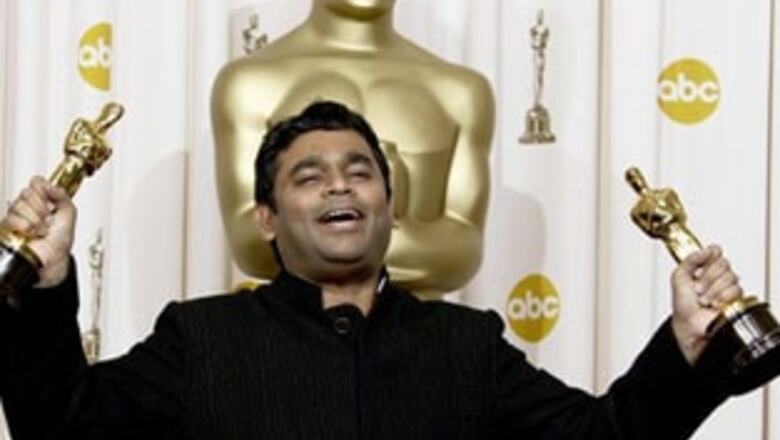
views
Danny Boyle almost botched it. The Welsh director had bottled the mad razzle of Mumbai quite brilliantly in Slumdog Millionaire. He just had to cap it well.
As Jamal meets Latika at the Churchgate station in a climax that was inevitably Mumbai, everything was perfect - the release of tension, atmosphere of jubilation - except for the sound of joy.
"Rahman heard the song that I had put and said ‘Don't use this song. I have another song for you. Use it' and I said What!!!" Boyle recalled in an interview to a website.
Actually, it wasn't even a song; just a danceable instrumental piece. But he agreed to listen to the song that Allah Rakha Rahman had in mind. Looking back, Jai Ho is what defines the climax. Hell, it is the climax.
Critics don't consider Jai Ho as his best work but they are barking up the tree and missing the woods. The reality is that Jai Ho is important for a variety of reasons that make Rahman one of the most influential musicians on the planet. And most of the reasons are in that song.
The song itself can be thought of as a Rahman glide note that joins three worlds: music of the West, East and computer technology. The rousing victory song set in A Minor reminds many people of Mozart's 40th Symphony but the melodic line of Jai Ho runs closer to the Austrian legend's Piano Sonata 8. One is tempted to think of it as a subconscious hat-tip from the Mozart of Madras to the Dear Departed.
Beyond the hat-tip though, it is Rahman's interpretation of the euphoric mood of the moment. The song loops in the enthusiasm of disco, rawness of world music, slick synthesizer runs and all of these buoy the soaring vocals. Superb sound engineering is the final touch that creates a song that is as much at home in an Indian music competition as much as it is in an Oscar ceremony.
The success of Slumdog Millionaire may have left everyone surprised but it is the result of a concerted effort. Rahman did the music for a Chinese film Warriors of Heaven and Earth in 2003. Then, he did the musical Bombay Dreams with Andrew Lloyd Webber in 2004.
He did the score for Lord of the Rings in 2007 and he did Raga's Dance for the violinist Vanessa Mae in 2008. In 2009, he did the music for a Hollywood film Couple's Retreat.
If this was merely another Indian composer trying to make it in the West it wouldn't be a big deal. It is much bigger. Rahman is trying to create sound that fuses the music of East and West. To do this, he has started his own KM music conservatory, a school of music as it were.
He also has his own label KM Musiq to produce the sort of music that he thinks should be out there. "I want to think like an entrepreneur not an employee. Attempts to create a synthesis of the music of West and the East were made in the past but did not last because that form wasn't institutionalised. I want to do that," says Rahman.
The tea leaves augur well. "Rahman has been trying to do this East-West bridge for a very long time. Bombay Dreams was the first time he made such an attempt. If anyone can, he can," says Vice-President at SaReGaMa, Atul Churamani.
Rahman was destined to cross boundaries. He was a child prodigy. A Tehelka article on him talks about one such instance. When Rahman was a kid, his father took him to a music director called Sudarshan. "I hear your child can play anything. Let's see if you can play this," he said and played a challenging piece. He then covered the harmonium keys with a veshti and gave it to the child. Rahman played the composition pitch perfect. An overwhelmed Sudarshan embraced the boy.
Maybe Rahman could have become a great Carnatic musician, maybe a great western classical virtuoso. A world of possibilities ended when his father passed away and the family went through some very hard times.
He had to record music for a fee to help feed his family. He played for television shows. He travelled with different music troupes all over South India. The genius could have remained a journeyman.
A scholarship to Trinity College of Music at Oxford in changed everything. In 1987, he returned from Oxford and by 1992, he had stunned the world with the soundtrack of Roja.


















Comments
0 comment